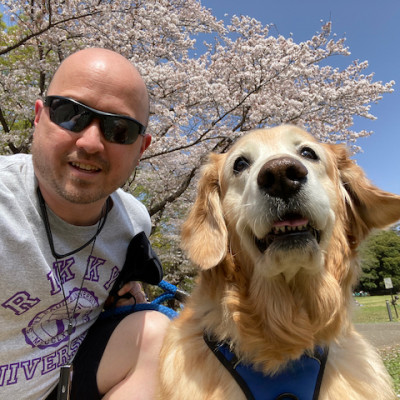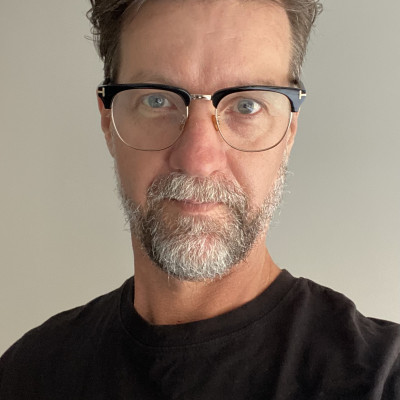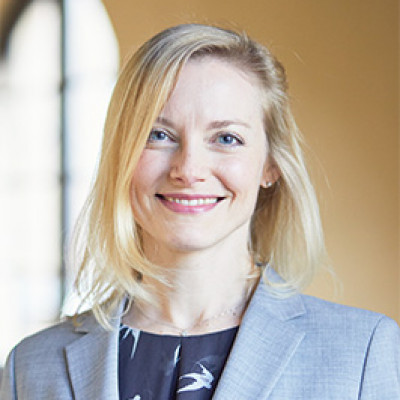Sessions / Location Name: Room 05
Virtual Location
Virtual: You cannot enter virtually via this page. Click on the titles of individual presentations or go to the Live Page
Using Zoom to Record On-Demand Teaching Content #1912
Due to the pandemic, many educators became familiar with using Zoom to teach live lessons online. Zoom is also useful for making videos that can be available on-demand to supplement in-class teaching. This workshop will demonstrate how to take full advantage of Zoom's features including using slides as a virtual background. Slide design for optimizing this feature will be demonstrated. Participants can try these features out on their own computers or simply observe. Questions and suggestions from participants are welcome.
Presentation Design and Delivery for Improved Classroom Lessons #1913
Although educators invest in knowing the content they teach, they may prepare slideshows as visual aids that are ineffective and counterproductive. Text-heavy slides reflect a knowledge-transfer approach instead of a constructivist approach. This workshop will demonstrate slide design from a multimedia learning perspective (Mayer, 2009) that is more effective. Additionally, tips will be given for slideshow delivery. Participants will be encouraged to ask questions and share ideas in this interactive workshop.
The Power of ‘Obsidian’ – Revolutionising the Way We Take Notes #1910
Note-taking is essential for any academic endeavour. Yet many curriculums fail to teach a systemised and effective approach to this skill. The repercussions are significant, more often than not resulting in substandard work being submitted by students. Inspired by Sönke Ahrens' breakout book 'How To Take Smart Notes', this workshop will cover the principles of taking smart notes and introduce a powerful note-taking app called 'Obsidian' that will help teachers and students alike optimise the thinking process.
Designing Your Presentation Media #1898
Whether for presentations or classroom use, most of us just "make" our media, often with little regard to functionality or aesthetics. This workshop will focus on ways to add useful design elements to your Keynote or PowerPoint slides. Putting more thought into how your media looks and behaves will make your presentations more appealing to audiences, easier to understand, efficient to create, and simpler to control. During the workshop, I will demonstrate some techniques I've found useful, and then set a couple of design tasks to complete. Please bring a device with either Keynote or PowerPoint installed.
Machine Translation-Supported Writing #1918
Student use of machine translation apps to complete writing assignments is prevalent and persistent. Instead of discouraging its use, I believe we can help students use it effectively as part of the writing process. Specifically, machine translation can be used to increase L1 and L2 text analysis and rewriting, and improve L2 writing output. In this workshop, participants will experience a machine translation workflow in which they analyze, pre-edit, and post-edit a passage.
Board of Directors Meet and Greet #2330
What does the board of directors (BoD) do? Who is on the 2021-2022 BoD? How does a member become a director? This informal interactive session will be attended by the current board of directors who will briefly introduce themselves and what they do. The floor will then be open for questions and discussion about the BoD, its members, and their work. Come ready to interact and converse!
Challenges Faced From Offscreen to Onscreen Teaching by Student Teachers #2377
This paper aims to present how a group of eight student teachers teach English language online in seven primary schools in East Malaysia. The focus of this study is looking at the strategies and types of technological tools incorporated into the lessons. The paper also highlights some of the challenges faced by the student teachers and how they attempted to overcome those challenges during the three-month practicum stint.
E-oral and Written Feedback on Students’ Language Research Papers #2331
This research presents the impact of using e-feedback in teaching language education research on graduate students’ research papers’ content and organization during the pandemic. The e-written feedback was integrated into students’ writing outputs. The e-oral feedback was conducted one-on-one through Zoom and Facebook messenger from November 2020-February 2021. Findings from the survey and focus-group discussion showed that the students claimed that their research papers’ content and organization improved, and immediate e-feedback was essential.
The University Students’ Overview in the Virtual Listening Class #2332
This study aimed to see the difficulties and the impact of the COVID-19 pandemic on a virtual listening class, and the students’ experiences in the listening class at the university level who are living in a rural area in Indonesia.
Unfolding Online Extensive Reading Attitudes and Experiences of Freshmen #2319
In Thailand, implementing an extensive reading program (ERP) at a university level is relatively new, especially with the integration of an online library. After two semesters of the ERP implementation at a large public university in Bangkok, a study has been conducted to investigate freshmen’s attitudes toward extensive reading, and experiences in reading graded readers online on Xreading.com. Students’ feedback will shed light on what needs to be done to improve the ERP.
International Forum: Reflections and New Perspectives From Asian Contexts #2386
The International Forum offers an excellent opportunity to learn from panelists who represent JALT’s international partner organizations in Asia. The panelists will share their educational experiences and diverse perspectives in relation to this year’s conference theme: Reflections and New Perspectives. This forum provides participants with the chance to interact and exchange ideas with experts from a wide range of educational contexts from different countries.
Developing a Teaching Portfolio for Reflective Practice #2345
As teachers, we develop a set of instructional skills and tools that we rely on. However, to what extent do we review our own performance? This session examines teaching portfolios as tools for reflective practice, using an example as a way to explore its efficacy. We will look at what to include and how to engage with the portfolio. This is a practical workshop intended to encourage instructors to consider this method of professional development.
A Genre-based Approach to Writing Instruction for Multilingual Learners #2406
This workshop presents a genre-based approach to writing instruction for multilingual learners, drawing on work in systemic-functional linguistics. This approach emphasizes an apprenticeship model – the teaching and learning cycle - based on detailed reading, deconstruction, joint construction, and independent construction. Using examples from elementary classrooms, the presenter highlights some challenges a genre approach can address and shows how teachers can assist second language writers in the context of the classroom.
Reflective Dialogue to Promote Professional Well-Being #2376
The JALT Mentoring & Orientation Committee will hold one-on-one sessions for JALT members registered for JALT International 2021. The 90-minute workshop focuses on enhancing the participants’ professional well-being through the approach of reflective dialogue. The participants will receive a pre-workshop introduction on how to conduct reflective dialogue by watching an introduction video and will be paired up with a partner in the workshop to practice reflective dialogue by having an actual session online.
Higher Education During COVID- 19: Wellbeing of Teachers and Students #2312
Students’ and teachers’ wellbeing has emerged as a common concern in research during COVID-19. Based on qualitative research and the data of 10 FGDs with teachers (25) and students (19) in private universities (11) in Bangladesh, the paper shows that online teaching is affected by contextual, material, physical, social, and psychological challenges, and, consequently, both teachers and students experience anxieties and stresses. Students from a non-privileged background suffer more than others.
Using Online Games and Tools to Improve Engagement With Young ESL Learners #2326
The shift to emergency remote teaching has called for many educators to adapt existing materials, which has presented a unique array of challenges for teaching English to young learners. This workshop seeks to explore online tools and games that can be used in both synchronous and asynchronous lessons to encourage engagement, increase motivation, and provide challenges and fun. Attendees will be able to experience the digital tools from both student and teacher perspectives.
Choosing ELT as a Career in Nepal: Voices From the Ground #2315
Motivations for choosing English teaching as a career have attracted considerable attention in recent years, and a number of research studies have been conducted to gain insights into English teachers’ reasons for entering teacher education programmes. This presentation will answer the question: Who chooses ELT as a career in Nepal and why? It also explores the job satisfaction level of the participants and the professional development activities they adopt to develop their professional competence.
Developing a Rating Scale for Assessing Interactional Competence #2181
Recently, there has been a considerable increase in interest in the teaching and assessment of interactional competence. However, its key to ensure that any assessment rubric functions effectively and reliably. This presentation reports on the process of rubric development that combined quantitative analysis using Many Facet Rasch Measurement with qualitative feedback from raters. Based on these analyses, recommendations are given for the development of well-functioning, reliable rubrics for assessing interactional competence and speaking skills.
The Use of First-Person Pronoun “We” in Science Research Articles #2083
In this presentation, how and where the first-person pronoun “we” is used in research articles written in English by authors of different linguistic backgrounds will be discussed. A research article corpus was created to analyze the uses of “we” in different sections of research articles. The metatextual uses of “we” were also examined using the verbs that collocate with “we.” The results show that “we” is widely used throughout science research articles.
Holistic and Analytic Ratings in Peer Assessment of Presentations #2027
This study examined student peer raters’ use of holistic rating scales in relation to analytic rating scales in peer assessments of EFL oral presentations. Japanese university students evaluated their classmates’ presentations using both holistic and analytic rating scales. Using a series of statistical analyses, including the many-facet Rasch measurement analysis, the researcher will discuss the role of analytic rating criteria in student peer raters’ holistic ratings.
Preliminary Results of a Presenting in a Foreign Language Anxiety Scale #2053
This presentation will detail the development of a Presenting in a Foreign Language Anxiety Scale (PFLAS) designed to measure the anxiety university students experience when making presentations in English. The results of an initial administration of the survey will be given, student responses to the scale and their significance will be discussed, and finally the next steps in the research process will be considered.
Examining the Equivalency of Picture-Based Speaking Tasks #2087
This study explores the equivalency of seven picture-based speaking tasks by comparing the oral performance they elicit from Japanese L2 learners. Despite controlling for variables across story length, sequential structure, and storyline complexity, the results were similar only in terms of fluency and not complexity, accuracy, or lexis. The study highlights the importance of piloting testing materials for conducting experimental research using a pretest-posttest design.
































